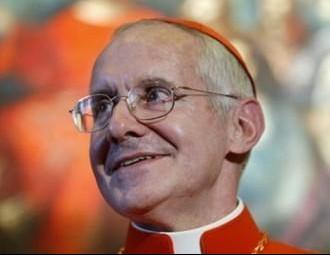Belarusan President assured papal legate that he favours Catholics

Aliaksandr Lukashenka met Cardinal Jean-Louis Tauran, president of the Pontifical Council for Interreligious Dialogue and spoke about interconfessional peace that characterizes our country.
“I’m pleased to see you in Belarus and welcome you on our Belarusian land,” Mr. Lukashenka said, according to the presidential press office. “I very much hope that your stay in Belarus will be successful, and that there are no reasons today for concern or anxiety that would cause additional problems.”
According to BelaPAN, Mr. Lukashenka said that there were 25 religious denominations in Belarus, and that they co-existed peacefully. He expressed satisfaction that the two “leading” denominations, the Russian Orthodox and the Roman Catholic Churches, had found ways of developing cooperation, and described them as constructive and beneficial to the state.
Mr. Lukashenka claimed that Christian denominations, including the Roman Catholic Church, had received significant support from the state recently. “I would like to assure you that we have no irresolvable issues and ask you to tell the pope that the Catholic denomination will continue to occupy a worthy place in Belarus,” he said.
Mr. Lukashenka stressed that the residents of Belarus were and would be able to practice their religious beliefs.
Msgr. Tauran, for his part, said that he had met with Pope Francis a few hours prior to his departure from the Vatican, and that the pontiff had asked him to pass his best wishes to Mr. Lukashenka and give his blessing to the whole Belarusian nation.
The cardinal said that he had had an opportunity to have a dialogue with representatives of different countries during his 28-year diplomatic career and come to conclude that a dialogue between religious denominations and the state was very important. That is why it is good to hear that all denominations feel at home in Belarus and live in peace and concord, he said.
The cardinal arrived in Minsk on the night between June 3 and 4 and is scheduled to attend festive events to be held in Budslau, a village in the Miadzel district, Minsk region, to celebrate 400 years since the Budslau Mother of God Icon was placed inside the Church of the Assumption of the Virgin Mary in Budslau.
-
03.01
-
07.10
-
22.09
-
17.08
-
12.08
-
30.09



























